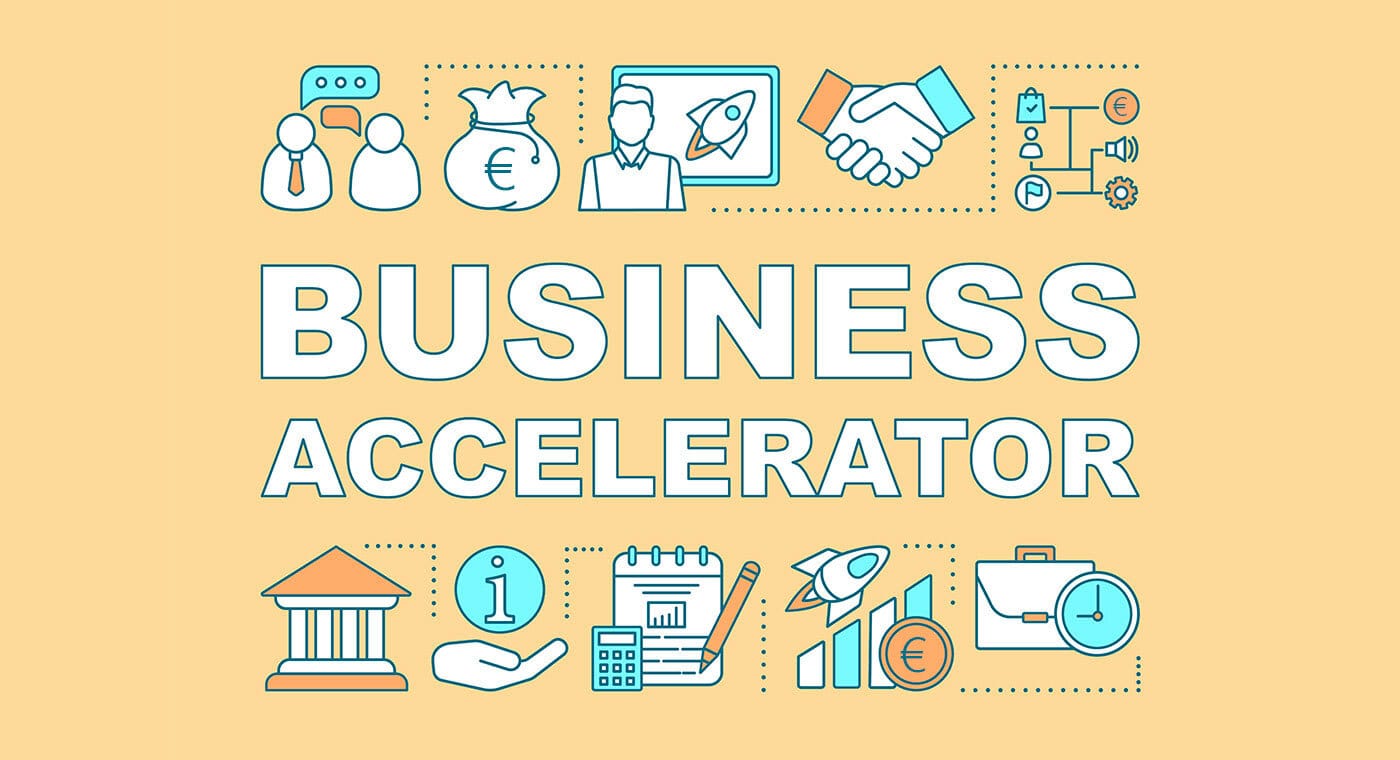It is not easy to give birth to a business idea and get it off the ground. To this end, there are business incubators and business accelerators, two realities that in some way help fledgling or newly formed startups to turn into real companies.
There are, however, some differences between business incubators and business accelerators. Before discovering them, let us try to be clear about the two concepts.
Table of contents
Business incubator: what it is
According to the European Commission’s definition, provided within the Benchmarking of business incubators report, on behalf of DG Enterprise, a business incubator is nothing more than «an organisation that is able to accelerate the processes of new business creation by providing them with a plethora of services: from physical spaces for networking to IT equipment, from business support to integration opportunities».
To paraphrase a bit, one could say that a business incubator aims at creating a protected environment where new business can be born, grow and develop.
How it works
An incubator can be compared to a flu incubator, belonging to the medical field; it creates the ideal habitat for germs to be born and grow. Similarly, a business incubator helps young people to shape their project.
Typically, the incubation period lasts no longer than 36 months, after which the start-up should already have acquired the capacity to produce profits on its own.
What it offers
In addition to the physical place where meetings can be held, a business incubator offers the following services:
- training;
- mentorship;
- realisation of the business plan.
All this is done against payment of a monthly fee or through the sale of shares in the fledgling startup.
Types of business incubator
There are five categories of incubators:
- business innovation center (BIC): public and non-profit. They mostly concern the manufacturing sector. They are accessed through a selection process;
- university business incubator (UBI): public and non-profit. They are based on projects created within universities. access is also subject to selection;
- corporate private incubator (CPI): private and for-profit. They are most often set up by large companies with the aim of launching independent business units;
- indipendent private incubator (IPI): private individuals who participate in the birth and growth of a start-up;
- virtual incubator (VI): their advantage lies in the fact that they are accessible from anywhere in the world and provide 'mixed tools' to launch the company.

Business Accelerator: what it is
A business accelerator serves to speed up the development of a startup; it can be free or for a fee. It provides useful tools, such as:
- strategic consulting;
- management consulting;
- networking activities;
- physical spaces in which to work.
The duration of assistance varies from 6 to 12 months.
The reason why a company turns to an accelerator is often a sudden difficulty, or the need to expand.
Business incubator and business accelerator compared
Business incubator and business accelerator share the same purpose: to ‘evolve’ the company, but in different ways. While the incubator targets startups that have just been formed (in some cases still to be established), the accelerator works with somewhat more mature startups that need to grow further.
In fact, many accelerators are also incubators and, in any case, the use of one does not preclude the use of the other at a later or earlier stage.
Differences
The most important differences between business incubator and business accelerator are four.
Timing
As already mentioned, the incubator deals with assisting newly born startups, the accelerator with slightly more mature startups that need to grow. The business risk is higher in the case of incubation, as it is a completely new business.
Business Model
If the incubator offers services for free or at a reduced rate, the accelerator charges – and handsomely too – for the amount of services offered. It usually charges between 4% and 40% of the share capital.
Duration
The incubator offers medium and long-term services, the accelerator has shorter and more intensive programmes that do not, however, exceed 36 months.
Training
The incubator only offers its trainees generic and support courses, the accelerator mentorship courses and specialised tutors.

The IHCT's AccelerAction project
JO Education | Innovation Hub Catania (IHCT), part of the JO Group cluster of companies and a bridge between business, society and research, proposes the AccelerAction project, with the aim of ‘accelerating’ innovation between interconnected systems.
AccelerAction: what it is
AccelerAction is a business accelerator, whose objectives are:
- improve the dissemination and quality of services offered by business accelerators;
- co-design acceleration programmes with other local and regional actors;
- increase the competitiveness and connectivity of the most disadvantaged ecosystems;
- foster entrepreneurship in Europe;
- encourage gender equality in innovation hubs.
JO Education | Innovation Hub Catania (IHCT), through the AccelerAction project, wants to support business scaling, help existing companies to expand and create a pan-European network involving local, regional, national and international actors.
For more information on the AccerlarAction project on business incubators and business accelerators, contact us by filling out the contact form below. We will help you choose the best strategies to get your business off the ground.

